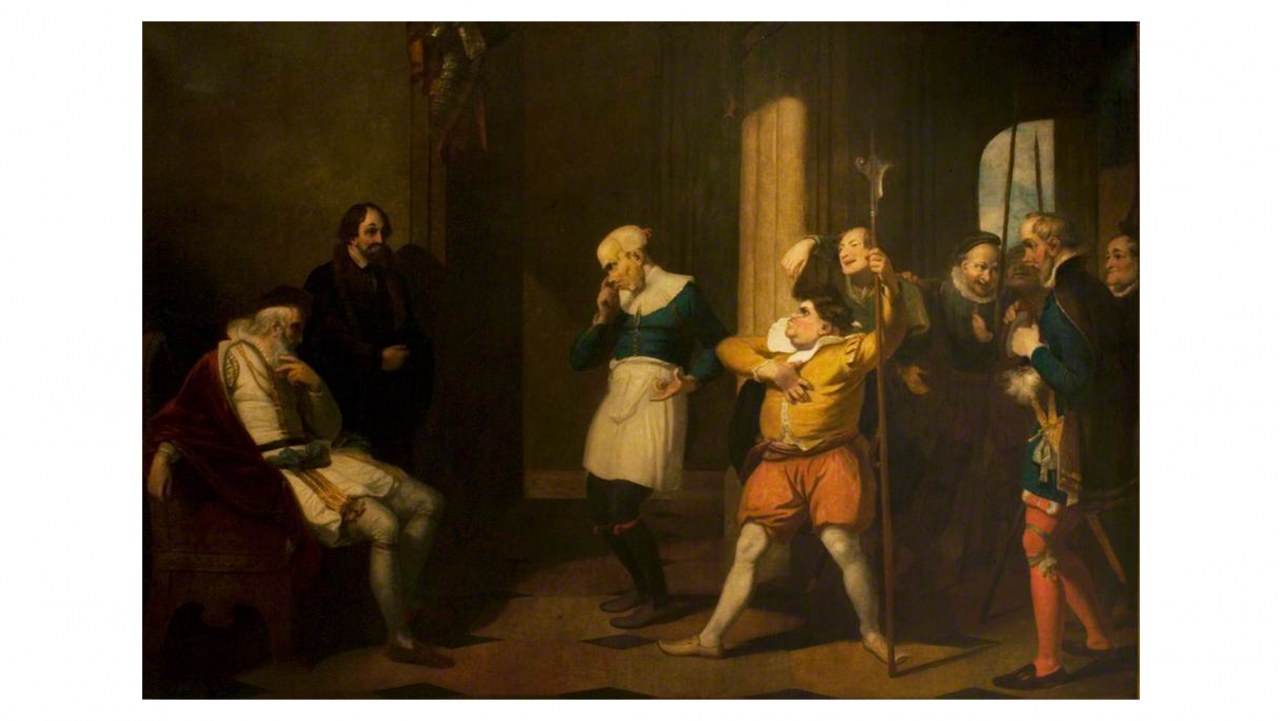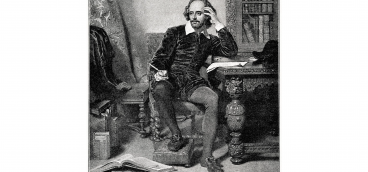Measuring the Law

Many years ago, I worked on a production of Measure for Measure, and many of those lines are still stuck in my head. Shakespeare is of course supremely quotable on any number of subjects. But this difficult and brilliant play about the law as it relates to sex has potent language that keeps floating up from memory when something sparks the issue. I distinctly heard Isabella’s lament during the Anita Hill/Clarence Thomas hearings. “Did I tell this, who would believe me?” she cries out in a soliloquy. She’s just been been propositioned and threatened by the “snow-broth” magistrate Angelo, who has been appointed to rule Vienna in the Duke’s absence.
Angelo, uptight but hobbled by lust for Isabella (perhaps turned on by her novitiate’s clothing and her reputation for purity), already warned her that speaking out would be unwise. “Who will believe thee, Isabelle? My unsoiled name, the austereness of my life” he tells her will keep him above reproach. He adds that if she does speak, the blame will fall on her and she will “smell of calumny.”
I thought of this play again during the Cavanaugh hearings because when Isabella forces herself into a public forum to ask for justice–something that is difficult for almost any woman and Isabella is about to become a nun, after all–she is treated as if she is crazy and accused of being “put up” to this disturbance. The Duke, returned to rule again, tells her, “By heaven, fond wretch, thou knowest not what thou speakest/or else art suborned against his honor in hateful practice.” In other words, Angelo is clearly not at fault so either you are a bit feeble minded or for some reason have hateful and destructive impulses toward this good man.
Lately more quotes are surfacing as I watch rallies in the pro-choice and pro-life movements, both loaded with contentious and complicated issues. There is the when of intervention and the what and the why. In Measure for Measure Isabella pleads for the life of her brother Claudio, whom Angelo, as temporary head of state, has condemned to death for fornication outside of marriage. The old and unused law Angelo has revived carries a steep penalty for natural sexual impulses. The comic characters joke that there will be no citizenry left if Angelo’s reign continues. But Angelo is cleaning up the city and by his sentence Claudio is to be put to death while Juliet, his beloved, is to be imprisoned and publicly shamed because she is pregnant. As Claudio is led to prison he explains to friends, “The stealth of our most mutual entertainment. With character too gross is writ on Juliet.”
Juliet is heavily pregnant. The visibility of her pregnancy got them caught. In fact, in some productions, because of the later line that Juliet is “near her hour,” the character is carrying a baby in the final scene.
Although Claudio gets a harsher sentence than Juliet does, the law today and in history has been most often the case of men writing laws about women. And for some snow-broth lawmakers, I suspect forcing a woman to carry to term is a version of marking her with a scarlet letter.
Isabella may be a nun and closed off from her own sexuality, but she is articulate and capable of righteous anger when she faces Angelo’s power over other lives. “Man, proud man, dressed in a little brief authority, most ignorant of what he is most assured….” Oh, Angelo, for a short time you get to play God, and you are most stupid about what you think you know. Men in authority, she says, are ridiculous enough, “to make the angels weep.”
At the end of this dark comedy are four marriages in progress—one forced, two pressured, and only one that comes of consensual “mutual entertainment” and intention. But I won’t try to summarize the rollicking reversals and ironies that attend these couplings, because at each moment somebody is both right and wrong, everybody is a shade of gray (as many productions like to emphasize in the costuming).
The even-handedness of this play, the balanced scales, the ironic conclusions have disappointed some lovers of Shakespeare who want their comedies to be lighter. But for those of us devoted to this play, Shakespeare’s lines are some of the most brilliant he wrote.
Because “it is excellent to have a giant’s strength, but it is tyrannous to use it like a giant,” because “we are all frail” and because we sometimes need “mercy to provide for better times to come,” I still hear this play fairly often when I watch the news.













